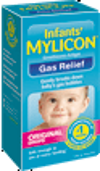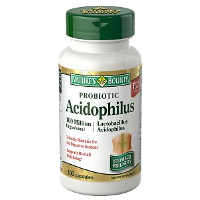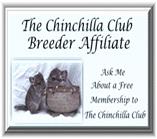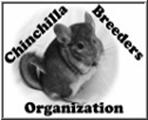What is bloat?
Bloat is a serious and extremely painful medical condition. A chinchilla with bloat has gas forming in their digestive system. Since chinchillas cannot burp and have trouble passing gas, the gas becomes trapped. Without assistance, the bloat can progress to the point of causing twisting of the intestines or rupture of either the stomach or the intestines, all of which are deadly to the chinchilla. Bloat can also cause the chinchilla’s digestive tract to go into stasis, meaning that the digestive system has totally stopped. Once a chinchilla develops stasis, it is extremely long and difficult (often unsuccessful) road to recovery.
Since bloat is such a serious condition, it should not be treated without the help of a veterinarian who specializes in exotic animals. A chinchilla with bloat needs to see a veterinarian immediately to help prevent serious complications or death.
What are the symptoms?
The symptoms of bloat include lack of appetite, constipation, hard swollen belly, stretching and pressing the belly to the floor. A chinchilla with bloat is in severe pain and will probably not eat or drink.
What are the causes?
Bloat can be caused by an inappropriate diet, sudden changes in feed, bad food or hay, or anything, such as medications, that can cause an imbalance in the chinchilla’s digestive system. Foods such as vegetables and fruits, dairy products, nuts, or any sugary treat should not be fed to chinchillas. Chinchillas’ digestive systems are designed to process dry grasses and plants. They do not have the ability to process sugars and fats. Drying fruits and vegetables only removes the water. It does not remove the sugars and fats present in the item. When any of these items are eaten, they can create an imbalance of the bacteria in the digestive system. This imbalance creates an excess of gas, causing the stomach to bloat. Bloat often happens in conjunction with other digestive issues. Constipation, an obstruction, and other serious problems can also cause bloat, hence, the need for a medical assessment.
How is bloat treated?
Treatment for bloat requires the assistance of a veterinarian who has knowledge in treating chinchillas. A full assessment by a veterinarian is necessary to be sure that any treatment plan is appropriate and to check for any other issues. It is not something that can be treated with home remedies and it will not go away on its own.
Options for treatment of bloat can include but are not limited to the following (not all at the same time and only with the supervision of a veterinarian):
- Metoclopramide (Reglan) – a gut stimulant used to keep the digestive system from going into stasis. Available by prescription only.
- Propulsid – a gut stimulant used to keep the digestive system from going into stasis. Available by prescription only.
- Simethicone (Mylicon Baby Gas Drops) – used to break up the gas bubbles, allowing the trapped gas to move through the system. Available over the counter at any grocery, drug, or department store.
- Meloxicam (Metacam) – a non-steroidal, anti-inflammatory used to reduce pain. By prescription only.
- Vetegesic (Buprenorphine) - a potent opiod analgesic, also used for pain relief. By prescription only.
- Probiotics (Acidophilus) - used to restore the natural bacterial balance of the digestive system. This is especially importantif the chinchilla is being treated with an antibiotic. Available over the counter. Look for a bacteria count in the billions.
- Syringe (Force) Feeding – chinchillas with bloat often will not eat, therefore, they need to be force fed to keep their digestive system moving. Oxbow Critical Care, Essentials for Life, and Supreme Science Recovery can be purchased from a veterinarian or online and are the most widely recommended brands of high fiber syringe food. Available online or from your veterinarian.
- Abdominal Massage – done gently to help stimulate the gut and move the gas and fecal matter through the intestines. Done in a small circular motion starting at the top of the abdomen and working down toward the anus.
- Gentle Exercise – when tolerated by the chinchilla, used in small amounts to help keep the gut moving.
- Intravenous Fluids – used when necessary to keep the chinchilla hydrated and to help soften the bolus (lump of food or fecal matter), making it easier to pass. Available by prescription only.
- Warm Compresses – used to ease pain and help the chinchilla relax. A sock can be filled with ordinary white rice (uncooked) and heated in the microwave. It is then placed on the lap and the chinchilla is gently laid across it, belly down for 10 to 20 minutes at a time.
 Simethicone
Simethicone Probiotics
Probiotics Syringe Food
Syringe FoodSome additional forms of treatment may include the following:
- Pineapple Juice – used to break down a bolus of food or fecal matter and make it easier to pass. Pineapple juice should only be used as a last ditch effort since the sugar in the juice can actually make matters worse.
- Liquid Paraffin – used to soften fecal matter.
A mild case of bloat may require only a few of the previously mentioned treatments. Severe bloat is much harder to treat and can be quite difficult requiring many of the treatments on the list. Additionally, if bloat is accompanied by stasis, it may require a greater effort to help the chinchilla recover. Since chinchillas deteriorate very quickly and it is very difficult to get a gut in stasis to start moving again, they can and often do, pass on, even with proper treatment.
Special note:
When syringe feeding an animal with digestive issues, it is recommended to feed several small feedings of 15 to 20 ml each, every few hours, totaling at least 60 ml per day, throughout the day and night to help keep the gut moving without putting too much additional stress on an already strained digestive system. Feeding larger less frequent amounts can cause further stretching if the digestive tract, increasing the likelihood of a rupture and increased pain for the chinchilla or even death.
How can bloat be prevented?
Bloat and other digestive issues such as constipation and diarrhea can be prevented by feeding a proper diet and avoiding any sudden changes in diet. Chinchillas should be fed a diet of high quality pellets, hay and few or no treats. Feed should be fresh and used within six months of the manufacture date; hay should be fresh and sweet smelling. If treats are given, they should only be once or twice a week and should not contain sugars, fats or high amounts of salt. Fruits and vegetables of any type should be avoided. If a change in pellets is necessary, it should be done slowly by mixing more and more of the new food with the old food. Adding acidophilus to the chinchilla’s pellets will help to prevent any digestive issues. Avoid constantly changing pellet brands just because one is cheaper than the other.



 Site Last Updated on December 31, 1969 05:00 pm
Site Last Updated on December 31, 1969 05:00 pm